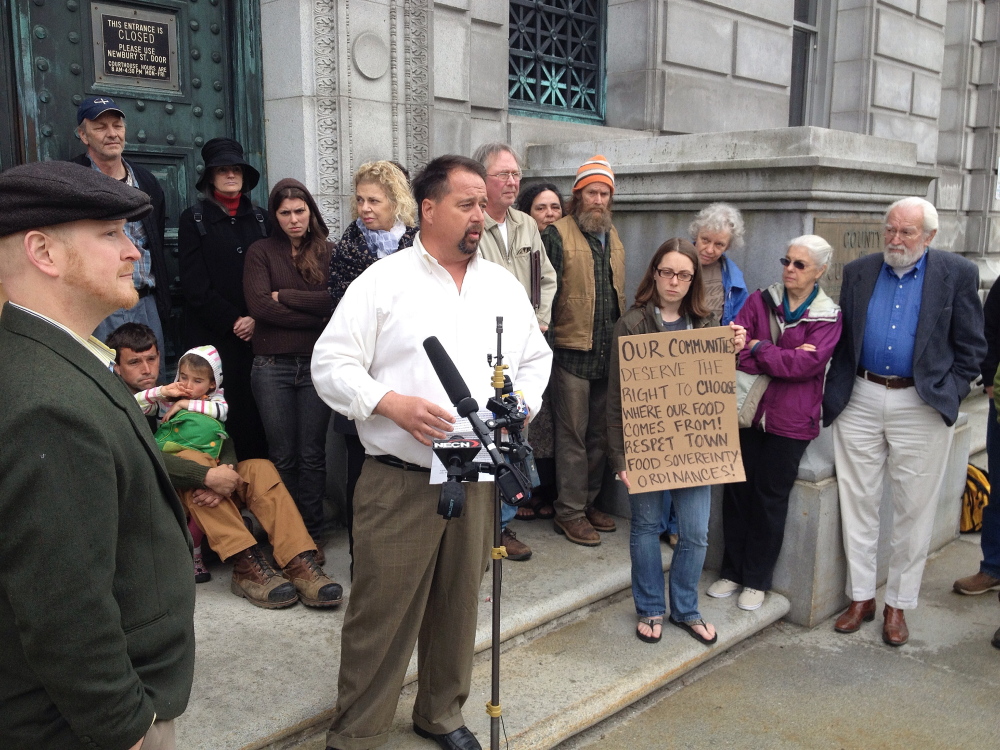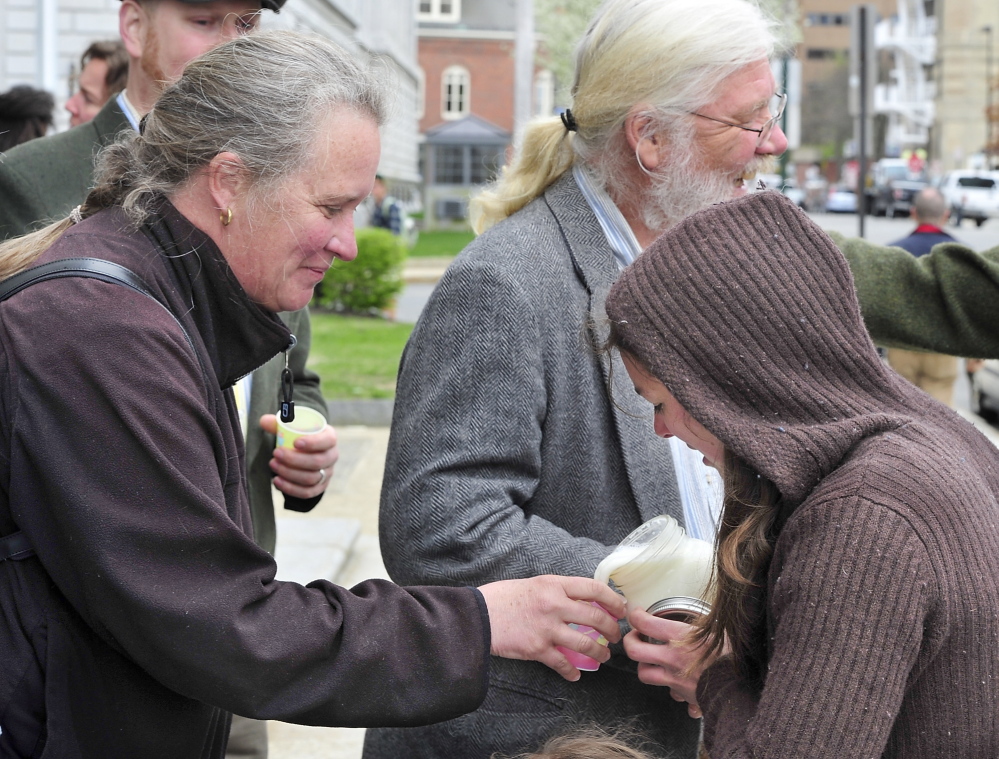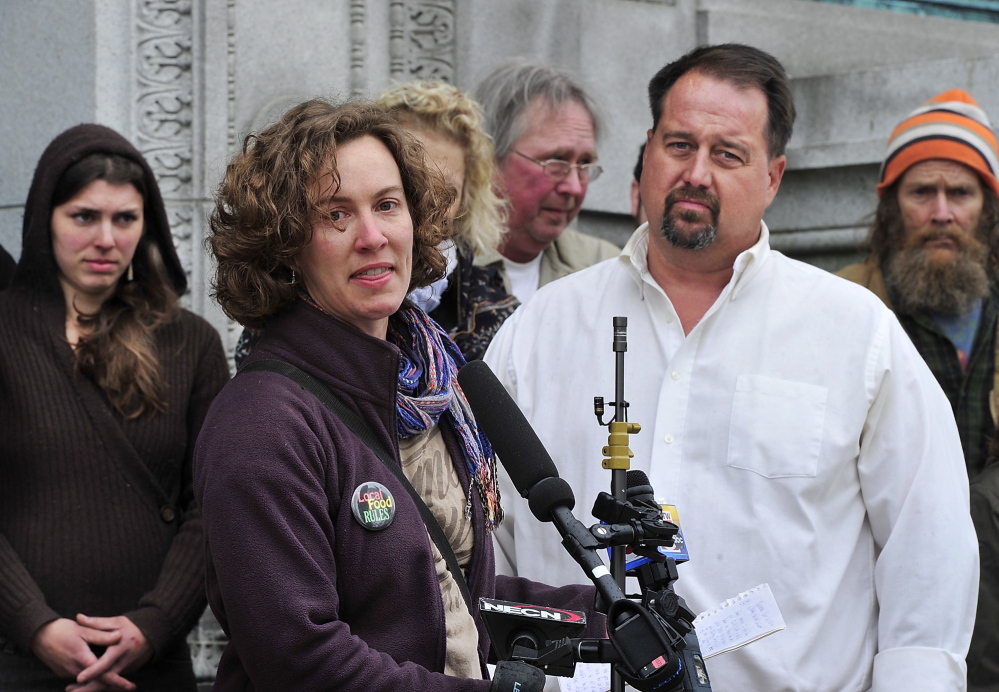A Blue Hill farmer who’s challenging state regulations that require him to plunk down thousands of dollars to obtain a license to sell raw milk at his farm stand left court after arguments Tuesday to cheers from supporters.
Dan Brown said the case is bigger than just him.
“I don’t even know half of these people,” Brown said in the courtroom. “This thing has taken on a life of its own. It’s not about Dan Brown any more. It’s about saving the family farm.”
The Maine Supreme Judicial Court did not rule after hearing arguments over whether Brown should be allowed to continue selling milk the way he has for years based on his understanding from state officials that he didn’t need a license.
The state later reversed its position and Brown was issued a civil summons in 2011 for selling milk without state licenses at his farm stand and at farmers markets.
The court has no timetable for a decision.
Blue Hill is one of several towns where voters passed ordinances that allow small-scale farmers to bypass state and federal regulations on foods sold directly to consumers, but the attorney general’s office maintains that state and federal law supersede the local ordinance.
Assistant Attorney General Mark Randlett argued that the state has an obligation to set reasonable standards to ensure milk is free of contaminants and the standards must apply to even the smallest farms.
“To hold otherwise would allow the sale of food products without any regulations to ensure food safety,” he said.
But the arguments Tuesday didn’t focus on state vs. local control. Instead, the discussion centered on a legal defense that can be invoked when someone contradicts a previous agreement.
Brown’s lawyer, Gary Cox, said Brown would have to spend up to $62,500 on improvements to his operation to be licensed by the state. He previously had only one milk cow, but now has eight.
Skeptical justices questioned Cox about whether anyone who’s told one thing and then another can continue their activities.
“Is it reasonable to assume that if he was told this five years ago, that it would last forever?” asked Justice Joseph Jabar.
But justices also questioned whether the state was going too far in regulating a farmer who sold directly to customers who knew that his milk had not been pasteurized.
Afterward, Brown said he didn’t object to the necessity of state licenses but with the expense to the small farm he operates with his wife.
“I can produce milk safely without all of that money being spent,” he said.
Send questions/comments to the editors.





Success. Please wait for the page to reload. If the page does not reload within 5 seconds, please refresh the page.
Enter your email and password to access comments.
Hi, to comment on stories you must . This profile is in addition to your subscription and website login.
Already have a commenting profile? .
Invalid username/password.
Please check your email to confirm and complete your registration.
Only subscribers are eligible to post comments. Please subscribe or login first for digital access. Here’s why.
Use the form below to reset your password. When you've submitted your account email, we will send an email with a reset code.